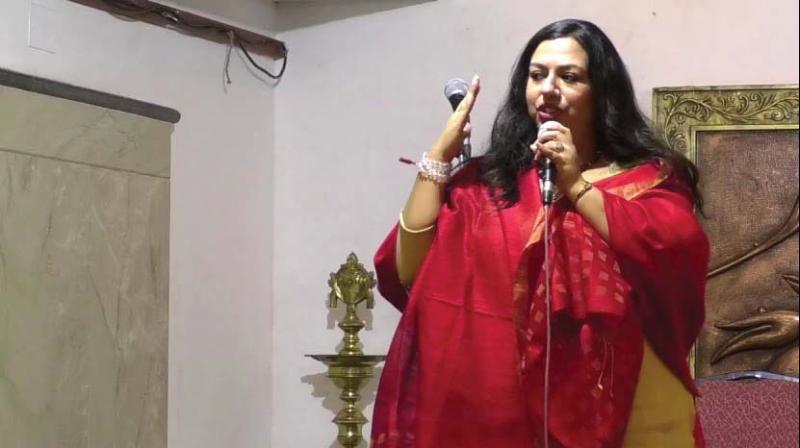Walk for change, show abandoned kids that we care

On September 23, hundreds of people will gather at Kanteerava Stadium, to walk together in solidarity for one cause: The rehabilitation of abused, abandoned and destitute children. Organised by the SAIBISA Trust, which operates across the country, the walkathon is aimed at raising awareness and bringing supporters on board: Jaya Wahi or Di Jaan, as she is dotingly known by her many followers, calls this the commitment of a lifetime.
Anjali (name changed) came bounding into the room, clutching, as it happened, a National Flag in her hand. Full of life and cheer, she rushed towards her guest and without preamble, gave her a hug. Whatever Di Jaan Jaya Wahi, the founder of the SAIBISA Trust, had arrived expecting, this wasn't it.
Anjali would go on to become the first baby to enter the folds of the SAIBISA trust today, tops her class and excels in sport. She loves to run but her joy was short-lived - it was left to Jaya Di to give her the heartbreaking news. "I had to tell her she couldn't run anymore," says Jaya di, her voice quavering slightly. Then again, few people can fathom the traumas this child has experienced. She was a little under four when she was abducted, brutally raped and left for dead.
At a ceremony at a village in North India, Anjali played about with her cousins. As they squeezed their way to the prasad counter, Anjali, to her disappointment, was too little to reach the top. As her cousins watched, a man approached, offering to help. Anjali nodded an innocent assent.
The next morning, police found her lying in a pool of blood. Taken for dead, she was put in the local morgue where the astonished doctor-in-charge discovered a heartbeat. Doctors took nine months to put her back together and her body, ravaged beyond recognition ,made a miraculous recovery.
Jaya di believes in miracles. "Her mother wanted me to put her in a school far aweay," she says. "Her childhood home was no place for her anymore." Friends told her this was too big a risk to take: "If anything had happened to the child, it would have had serious consequences for us. And she was already so fragile."
Anjali's recovery is hard to believe but for young girls like her, the hardships are only beginning. "She doesn't realise the enormity of what happened to her," says Jaya di. "That realisation will come when they are in their teens, when they don't go through puberty like everyone else. Many of them can't have children, which means they may not marry. The challenges are enormous but I have faith in Sai Baba."
Jaya di is an unlikely spiritual leader: Growing up in a military background, she was a wordly young woman. At the age of 29, she had what she describes as a divine summons, a calling to heal. Those who join her at SABISA trust are her 'healers', together, they work with destitute and ill children across the country.
"I believe a woman is complete in herself. She is not defined by her ability to marry or bear children," says Jaya di. "And the only way to give them a chance to have their best life is education."
The children are placed in top residential schools, away from the surroundings that left them so scarred. Jaya di, who speaks to Deccan Chronicle from a Malleswaram apartment, her pitstop in Bengaluru. She is swamped with interviews: her book, Sai Baba is Still Alive, became an instant bestseller.
The walkathon on September 23 will raise awareness and funds for the SAIBISA trust, which houses 900 children at its Bengaluru Remand Home. Both boys and girls, they are all victims of trauma, abandonment and abuse, or physically or mentally challenged. DG IGP Neelamani Raju and dancer Vani Ganapathi will be among the slew of eminent personalities in attendance: "Neelamani ma'am is a great source of support an encouragement," Jaya Di says, fondly. "It's an early start," she admits, in her jovial way, "But do put in the effort. This is not just about a one-time contribution, these children need our support and encouragement for the rest of their lives.

